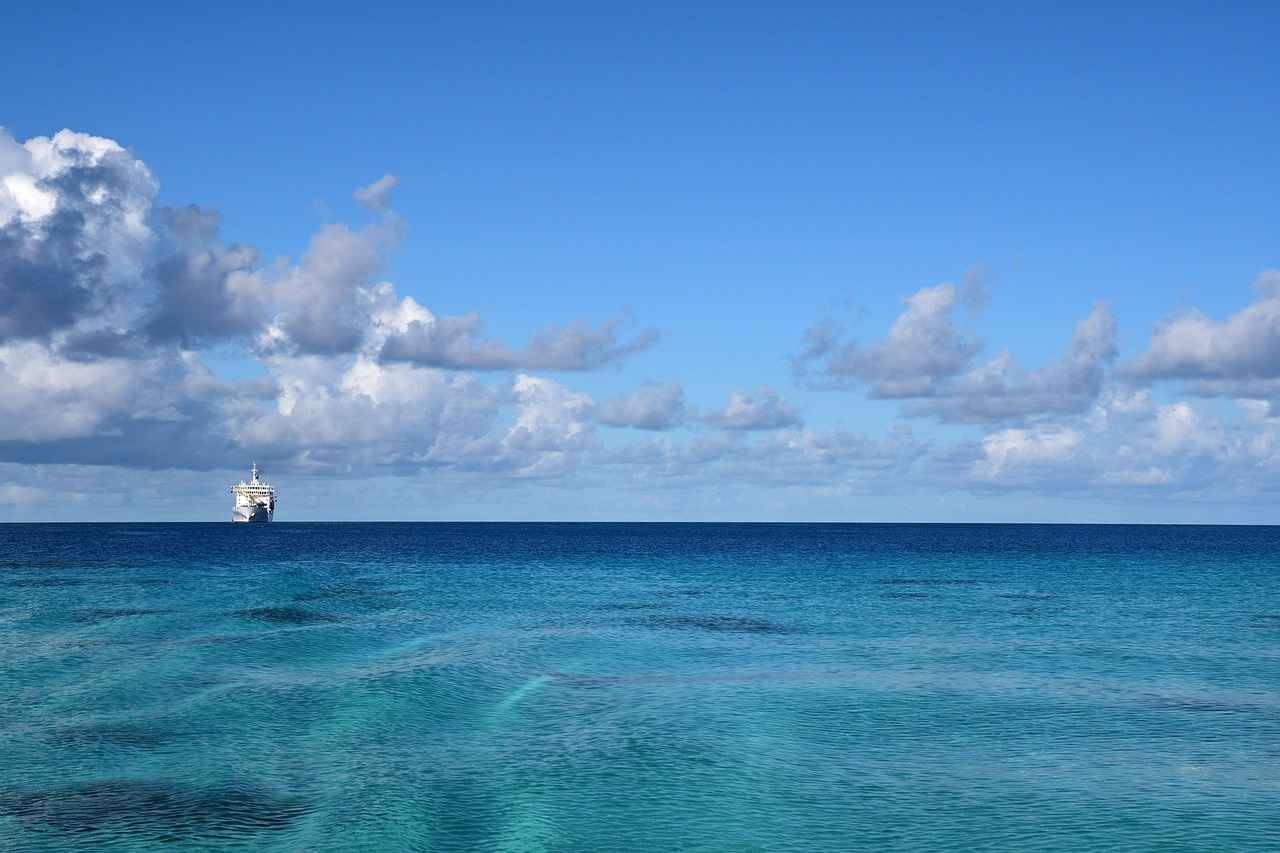Embark on an exciting journey through the enchanting realm of ocean-themed movies designed for kids. These films are not only filled with thrilling adventures and heartwarming friendships but also impart valuable life lessons that resonate with young viewers. This guide showcases the finest oceanic films that inspire children to cherish and appreciate the wonders of marine life.
Why Ocean Movies Are Important for Kids
Ocean movies serve as a gateway for children to learn about marine ecosystems while nurturing a deep appreciation for nature. They emphasize the significance of conservation and reveal the incredible diversity of underwater life, encouraging kids to become stewards of the environment.
Top Ocean Movies for Kids
Here’s a curated list of the best ocean-themed movies that captivate young audiences, combining entertainment with educational value. These films are sure to make a splash with children of all ages.
- Finding Nemo: This Pixar classic follows the journey of a clownfish named Marlin as he searches for his son, Nemo. It’s a heartwarming tale of adventure, family, and perseverance.
- Moana: Moana tells the story of a spirited girl who sails across the ocean to save her island. This film showcases Polynesian culture and the importance of following one’s destiny.
- The Little Mermaid: A Disney favorite, this musical features Ariel, a mermaid who dreams of becoming human. It highlights themes of love, sacrifice, and the desire to explore new worlds.
- Finding Dory: As a sequel to Finding Nemo, this film focuses on Dory’s quest to find her family. It emphasizes the value of friendship and the challenges faced by those with memory loss.
Lessons Learned from Ocean Movies
Ocean-themed films often impart valuable life lessons, including the significance of friendship, courage, and environmental stewardship. These messages resonate with children and encourage positive values.
Impact of Animation in Ocean Movies
The vibrant animation in ocean movies brings marine life to life, captivating young audiences. It enhances storytelling and makes learning about the ocean fun and engaging.
- Realistic Marine Life Representation: Many ocean movies strive for accuracy in depicting marine species. This realism helps children develop an understanding of biodiversity and the importance of protecting ocean habitats.
- Musical Elements in Ocean Films: Soundtracks and songs in ocean movies play a crucial role in enhancing the emotional experience. Catchy tunes and engaging lyrics keep children entertained while reinforcing the story.
How to Choose the Right Ocean Movie for Your Child
Selecting the right ocean movie involves considering your child’s age, interests, and the film’s educational value. Look for films that balance entertainment with meaningful messages.
Conclusion: The Magic of Ocean Movies
Ocean movies provide a unique blend of adventure and education, making them a perfect choice for family movie nights. They inspire a love for the ocean and encourage young viewers to explore its wonders.

Why Ocean Movies Are Important for Kids
Ocean movies serve as a captivating gateway for children to explore the vast and mysterious world beneath the waves. These films are not just entertaining; they are rich in educational content that fosters a deeper understanding of marine ecosystems. By immersing young viewers in colorful underwater adventures, these movies ignite a passion for nature and conservation.
One of the primary benefits of ocean-themed films is their ability to teach children about the delicate balance of marine life. Through storytelling, they introduce various species and their habitats, showcasing the intricate relationships that exist in the ocean. For instance, movies like Finding Nemo and Moana highlight the importance of biodiversity and the roles different creatures play in maintaining healthy ecosystems.
Moreover, these films often incorporate messages about environmental conservation. They encourage children to appreciate the beauty and fragility of marine environments, instilling a sense of responsibility towards protecting these natural treasures. For example, films that depict the challenges of pollution and climate change can inspire young audiences to take action in their own lives, promoting eco-friendly practices.
In addition to education, ocean movies foster a sense of wonder and adventure. They invite children to dream big, explore new horizons, and develop a love for exploration. The vibrant animation and engaging narratives captivate young minds, making learning about the ocean a fun and memorable experience.
In conclusion, ocean movies are invaluable tools for educating children about marine ecosystems and conservation. They not only entertain but also inspire the next generation to become stewards of the ocean, ensuring its protection for years to come.

Top Ocean Movies for Kids
Embark on an exciting journey through the depths of the ocean with this carefully curated selection of ocean-themed movies designed for young audiences. These films not only entertain but also educate children about the wonders of marine life and the importance of conservation.
Here’s a list of some of the most captivating ocean movies:
- Finding Nemo – This heartwarming Pixar adventure follows Marlin, a clownfish, as he braves the vast ocean to find his son, Nemo. Along the way, children learn about friendship, bravery, and the importance of family bonds.
- Moana – Moana’s quest to save her island introduces viewers to Polynesian culture and the spirit of adventure. This film emphasizes the significance of following one’s dreams and protecting the ocean.
- The Little Mermaid – A classic Disney tale, this musical features Ariel, a mermaid who longs to explore the human world. It explores themes of love, sacrifice, and the allure of the unknown.
- Finding Dory – A delightful sequel to Finding Nemo, this film focuses on Dory’s journey to reunite with her family. It teaches kids about friendship and the challenges faced by those with memory issues.
These films are not just entertaining; they also impart valuable lessons about the ocean and its inhabitants. Children are inspired to appreciate marine ecosystems and understand the importance of protecting our planet’s waters.
In conclusion, ocean-themed movies serve as a fantastic tool for parents to introduce their children to the beauty and challenges of marine life. By watching these films, kids can dive into adventures that spark their curiosity and passion for the ocean.
Finding Nemo
is a beloved animated film produced by Pixar Animation Studios and released by Walt Disney Pictures. This heartwarming story follows the adventurous journey of a clownfish named Marlin as he embarks on a quest to find his son, Nemo, who has been captured by a diver and placed in a fish tank. The film beautifully portrays themes of family, adventure, and perseverance, making it a favorite among audiences of all ages.
- Marlin’s Character Development: Throughout the film, Marlin transforms from a cautious and overprotective father into a brave and determined hero. His growth resonates with viewers, emphasizing the importance of trust and letting go.
- Nemo’s Courage: Despite being a small fish with a disability, Nemo showcases immense bravery and resourcefulness as he navigates the challenges of the ocean. His character inspires children to embrace their uniqueness and face fears.
- Friendship: The film also highlights the significance of friendship through Marlin’s relationship with Dory, a forgetful blue tang fish. Their bond illustrates how friendships can help us overcome obstacles.
In addition to its engaging storyline, offers educational insights into marine life and ecosystems. The film introduces various species of fish and underwater environments, fostering a sense of curiosity and appreciation for the ocean among young viewers.
Overall, is more than just an entertaining movie; it serves as a touching reminder of the lengths a parent will go for their child and the value of love and friendship. Its stunning animation, memorable characters, and heartfelt messages ensure that it will remain a classic for generations to come.
Moana
is a captivating animated film that takes viewers on a thrilling adventure across the vast ocean. This movie tells the story of a determined young girl who embarks on a quest to save her island, Te Fiti, from environmental decay. With her trusty companion, a demigod named Maui, Moana navigates the challenges of the ocean, showcasing her bravery and resilience.
The film is not just a tale of adventure; it also serves as a celebration of Polynesian culture. Through its stunning visuals, rich storytelling, and memorable music, “Moana” introduces audiences to the traditions and values of the Polynesian people. The importance of following one’s destiny is a central theme, encouraging viewers to listen to their inner voice and embrace their true calling.
One of the standout features of Moana is its vibrant animation. The depiction of the ocean and its inhabitants is both realistic and enchanting, drawing audiences into a world teeming with life. The film also emphasizes the significance of environmental stewardship, teaching children about the delicate balance of nature and the importance of protecting our planet.
Moreover, the soundtrack, featuring songs like “How Far I’ll Go,” resonates with viewers of all ages. These musical elements enhance the emotional depth of the story, making it a memorable experience for families. The combination of adventure, culture, and music makes “Moana” a perfect film for children, providing both entertainment and valuable life lessons.
In conclusion, “Moana” is more than just a children’s movie; it is a powerful narrative that inspires young viewers to explore their identities and appreciate the beauty of the world around them. Its blend of adventure, cultural representation, and environmental awareness ensures that it will remain a beloved classic for years to come.
The Little Mermaid
is a timeless classic that has captured the hearts of audiences since its release. This enchanting musical tells the story of Ariel, a young mermaid with a deep yearning to explore the human world. Set against the backdrop of vibrant underwater landscapes, the film is not only a visual feast but also a rich tapestry of themes that resonate with viewers of all ages.
At its core, explores the themes of love, sacrifice, and the quest for identity. Ariel’s desire to become human drives her to make a perilous deal with the sea witch Ursula, showcasing the lengths one will go to for love and acceptance. This central conflict highlights the importance of making choices and understanding their consequences, a lesson that is vital for children as they navigate their own lives.
Additionally, the film introduces audiences to a variety of memorable characters, each contributing to Ariel’s journey. From her loyal friends like Flounder and Sebastian to the imposing presence of Ursula, these characters enrich the narrative and provide valuable lessons about friendship and loyalty.
| Character | Description |
|---|---|
| Ariel | The adventurous young mermaid who dreams of the human world. |
| Ursula | The sea witch who offers Ariel a dangerous deal. |
| Flounder | Ariel’s loyal fish friend who supports her dreams. |
| Sebastian | The wise crab who tries to keep Ariel safe. |
The film’s stunning animation and memorable songs, such as “Part of Your World” and “Under the Sea,” further enhance its appeal. The music not only entertains but also deepens the emotional connection between the audience and the characters.
In conclusion, remains a beloved film that transcends generations. Its captivating story, rich themes, and unforgettable music make it a perfect choice for family viewing. This classic not only entertains but also inspires young viewers to dream big and embrace their true selves.
Finding Dory
is a heartwarming sequel to the beloved film Finding Nemo. This animated adventure dives deep into the ocean, following the lovable blue tang fish, Dory, as she embarks on a quest to reunite with her family. The film not only captivates young audiences with its vibrant underwater animation but also imparts significant life lessons about friendship, perseverance, and the challenges faced by individuals with memory loss.
In , we witness Dory’s journey through the ocean, where she encounters various marine creatures who assist her in her search. The film highlights the importance of community and how friendships can blossom even in the most unexpected circumstances. Dory’s character, who struggles with short-term memory loss, teaches viewers about the value of patience and understanding when dealing with those who have similar challenges.
The movie also emphasizes the significance of family connections. Dory’s determination to find her parents showcases the deep emotional bonds that exist within families, resonating with audiences of all ages. As she navigates through obstacles and setbacks, children learn that it’s okay to ask for help and that support can come from friends and new acquaintances alike.
Moreover, serves as a reminder of the importance of marine conservation. Through Dory’s adventures, children gain insights into the diverse ecosystems of the ocean and the creatures that inhabit them. This awareness fosters a sense of responsibility toward protecting our oceans and the life within them.
In conclusion, is not just an entertaining film but a rich narrative filled with lessons about love, resilience, and the importance of friendship. It encourages viewers to embrace their unique qualities while fostering a greater appreciation for the natural world.

Lessons Learned from Ocean Movies
Ocean-themed films are not just entertaining; they are rich with valuable life lessons that resonate with young audiences. These movies often explore themes that encourage children to develop essential values, such as friendship, courage, and a sense of responsibility towards the environment.
- Friendship: Many ocean movies highlight the importance of building strong relationships. Characters often embark on adventures that teach them the value of loyalty and teamwork. For instance, in Finding Nemo, Marlin learns to trust others and rely on friendships to overcome challenges.
- Courage: Facing fears is a recurring theme in these films. Characters like Moana demonstrate bravery as they venture into the unknown. Such narratives inspire children to confront their own fears and embrace challenges with confidence.
- Environmental Stewardship: Ocean movies frequently convey messages about the importance of protecting marine life and ecosystems. Films like Finding Dory emphasize the need for conservation and respect for nature, encouraging children to become advocates for the environment.
Through engaging storytelling and vibrant animation, these films create a profound impact, fostering a sense of empathy and awareness in young viewers. The lessons imparted are not just relevant to the ocean; they extend to everyday life, teaching children to be kind, brave, and responsible individuals.
In conclusion, the magic of ocean-themed movies lies in their ability to entertain while simultaneously imparting important values. As children dive into these underwater adventures, they emerge not only with a love for the ocean but also with a deeper understanding of the world around them.

Impact of Animation in Ocean Movies
The world of ocean-themed movies is not only a feast for the eyes but also a powerful medium for education and inspiration. The vibrant animation in these films plays a crucial role in bringing marine life to life, captivating young audiences and enhancing their viewing experience. Here, we explore how animation enhances storytelling and makes learning about the ocean both fun and engaging.
One of the most significant benefits of animation in ocean movies is its ability to create realistic and imaginative representations of underwater ecosystems. Animated films like Finding Nemo and Moana utilize stunning visuals to depict a variety of marine species and habitats. This not only entertains children but also educates them about the diversity of life beneath the waves. For instance, children learn about the different species of fish, coral reefs, and the importance of preserving these ecosystems through visually engaging narratives.
| Film Title | Key Features |
|---|---|
| Finding Nemo | Realistic marine life, emotional storytelling |
| Moana | Cultural representation, adventure |
| The Little Mermaid | Musical elements, themes of exploration |
| Finding Dory | Friendship, memory challenges |
Moreover, the musical elements in these films often amplify their emotional impact. Catchy songs and memorable soundtracks not only entertain but also reinforce the story’s themes. For example, the music in Finding Nemo adds depth to the emotional journey of the characters, making it easier for children to connect with their experiences.
In conclusion, the vibrant animation in ocean movies is essential for capturing the imagination of young viewers. By combining stunning visuals with engaging storytelling and educational content, these films inspire a love for the ocean and promote a greater understanding of marine life. As children dive into these animated adventures, they not only enjoy the spectacle but also learn valuable lessons about conservation and the beauty of our planet’s oceans.
Realistic Marine Life Representation
in ocean-themed movies plays a crucial role in educating children about the diverse ecosystems that exist beneath the waves. These films often incorporate scientifically accurate depictions of various marine species, which not only entertain but also inform young viewers about the richness of ocean biodiversity.
By showcasing a variety of marine life, such as colorful coral reefs, majestic whales, and playful dolphins, these movies engage children’s imaginations while providing them with a glimpse into the complex web of life that thrives underwater. This realism fosters a deeper understanding of how different species interact within their habitats, highlighting the delicate balance of marine ecosystems.
Moreover, when children see realistic portrayals of marine animals, they are more likely to develop a sense of empathy towards these creatures. For instance, films like Finding Nemo and Moana not only feature stunning animations of fish and other sea life but also present narratives that emphasize the importance of preserving their habitats. This connection encourages children to appreciate and protect the oceans and the myriad of life forms that inhabit them.
In addition, the educational aspect of these films can spark curiosity and inspire young minds to learn more about marine biology and conservation efforts. As children become more aware of the challenges faced by marine species, such as climate change and pollution, they may feel motivated to take action, whether through personal choices or participating in conservation initiatives.
In summary, the realistic representation of marine life in ocean movies is vital for instilling a love for the ocean in young audiences. By combining entertainment with educational value, these films create a lasting impact that can inspire future generations to become stewards of the sea.
Musical Elements in Ocean Films
are not just background noise; they are integral to the storytelling experience. The melodies and lyrics create a vibrant atmosphere that enhances the emotional depth of the narrative. From the moment the opening credits roll, the audience is drawn into an enchanting world where music and ocean adventures intertwine.
One of the most significant aspects of these soundtracks is their ability to evoke feelings of joy, sadness, and excitement. For instance, in Finding Nemo, the score captures the essence of the underwater journey, making viewers feel the weight of Marlin’s quest and the thrill of discovery. Similarly, in Moana, the songs serve as a powerful narrative device, reflecting the protagonist’s struggles and aspirations, while also celebrating her Polynesian heritage.
Moreover, catchy tunes and memorable lyrics play a crucial role in keeping children engaged. Songs like “Under the Sea” from The Little Mermaid not only entertain but also reinforce the story’s themes of adventure and self-discovery. These musical elements help children connect with the characters and their journeys on a deeper level.
In addition to enhancing the emotional experience, the soundtracks often introduce young audiences to various musical styles, fostering an appreciation for diverse cultures. For example, the rhythmic beats in Moana are influenced by traditional Polynesian music, making the film an educational experience as well.
Overall, the musical elements in ocean films are a vital part of their charm and effectiveness. They create memorable moments that resonate with audiences long after the credits roll, ensuring that these films are not just watched, but felt. As parents and guardians select ocean-themed movies for their children, recognizing the importance of music can enhance the viewing experience and contribute to a richer understanding of the stories being told.

How to Choose the Right Ocean Movie for Your Child
Choosing the right ocean movie for your child can be a delightful yet challenging task. With a plethora of options available, it’s essential to consider various factors to ensure the film is both enjoyable and educational. Here are some key points to help you make the best choice:
- Age Appropriateness: Always consider your child’s age when selecting a movie. Younger children may prefer colorful animations with simple plots, while older kids might enjoy more complex narratives.
- Interests: Take into account your child’s interests. If they are fascinated by marine life, look for films that highlight various ocean creatures and ecosystems.
- Educational Value: Look for movies that offer educational insights about marine biology, conservation, and the environment. Films that weave in valuable lessons can spark curiosity and promote learning.
- Entertainment vs. Message: Aim for a balance between entertainment and meaningful messages. A film that keeps your child engaged while imparting important values about friendship, bravery, or environmental stewardship will be most beneficial.
- Animation Quality: High-quality animation can enhance the viewing experience. Films that vividly depict underwater worlds can captivate young audiences and make learning about the ocean more enjoyable.
Additionally, consider watching trailers or reading reviews to gauge whether a movie aligns with your expectations. Engaging your child in the decision-making process can also enhance their excitement about the film. By focusing on these factors, you can ensure that your movie night is filled with fun and learning.
In conclusion, selecting an ocean movie for your child should be a thoughtful process that considers their age, interests, and the film’s educational value. This approach will help nurture their love for marine life while providing a memorable viewing experience.

Conclusion: The Magic of Ocean Movies
Ocean movies provide a unique blend of adventure and education, making them an ideal choice for family movie nights. These films not only entertain but also inspire a love for the ocean and encourage young viewers to explore its wonders. By immersing children in colorful underwater worlds, these movies ignite curiosity and foster a sense of responsibility towards marine conservation.
Through captivating storytelling, ocean-themed films often introduce audiences to the diverse ecosystems that exist beneath the waves. Children learn about various marine species, their habitats, and the delicate balance of life in the ocean. This knowledge is crucial as it promotes a deeper understanding of environmental issues and the importance of protecting our planet’s precious resources.
Moreover, ocean movies often feature relatable characters and heartwarming narratives. These stories highlight the values of friendship, courage, and perseverance. For instance, in films like Finding Nemo and Moana, young viewers witness characters overcoming challenges, which can resonate with their own experiences and inspire them to face their fears.
As families gather for movie nights, these films serve as a springboard for discussions about marine life and conservation efforts. Parents can engage their children by asking questions about the film’s themes and encouraging them to think critically about the ocean’s role in our ecosystem.
In conclusion, ocean movies are more than just entertainment; they are powerful tools for education and inspiration. By watching these films, children not only enjoy thrilling adventures but also develop a lifelong appreciation for the ocean and its myriad wonders. So, gather your loved ones, pick a film, and dive into the magical world that awaits beneath the surface!
Frequently Asked Questions
- What age group are ocean movies suitable for?
Ocean movies are generally suitable for children aged 3 and up. However, some films may have themes that resonate better with older kids, so it’s always good to check the movie’s rating and content.
- Are ocean movies educational?
Absolutely! Many ocean-themed films incorporate valuable lessons about marine life, conservation, and friendship, making them both entertaining and educational for young viewers.
- Can ocean movies inspire kids to care for the environment?
Yes! Ocean movies often highlight the beauty of marine ecosystems and the importance of protecting them, which can inspire children to become more environmentally conscious and take action in their own lives.
- What are some popular ocean movies for family movie night?
Some favorites include Finding Nemo, Moana, The Little Mermaid, and Finding Dory. These films combine adventure with heartwarming stories that appeal to the whole family!
- How can I choose the right ocean movie for my child?
Consider your child’s age, interests, and the film’s educational value. Look for movies that balance fun storytelling with meaningful messages about the ocean and its inhabitants.














